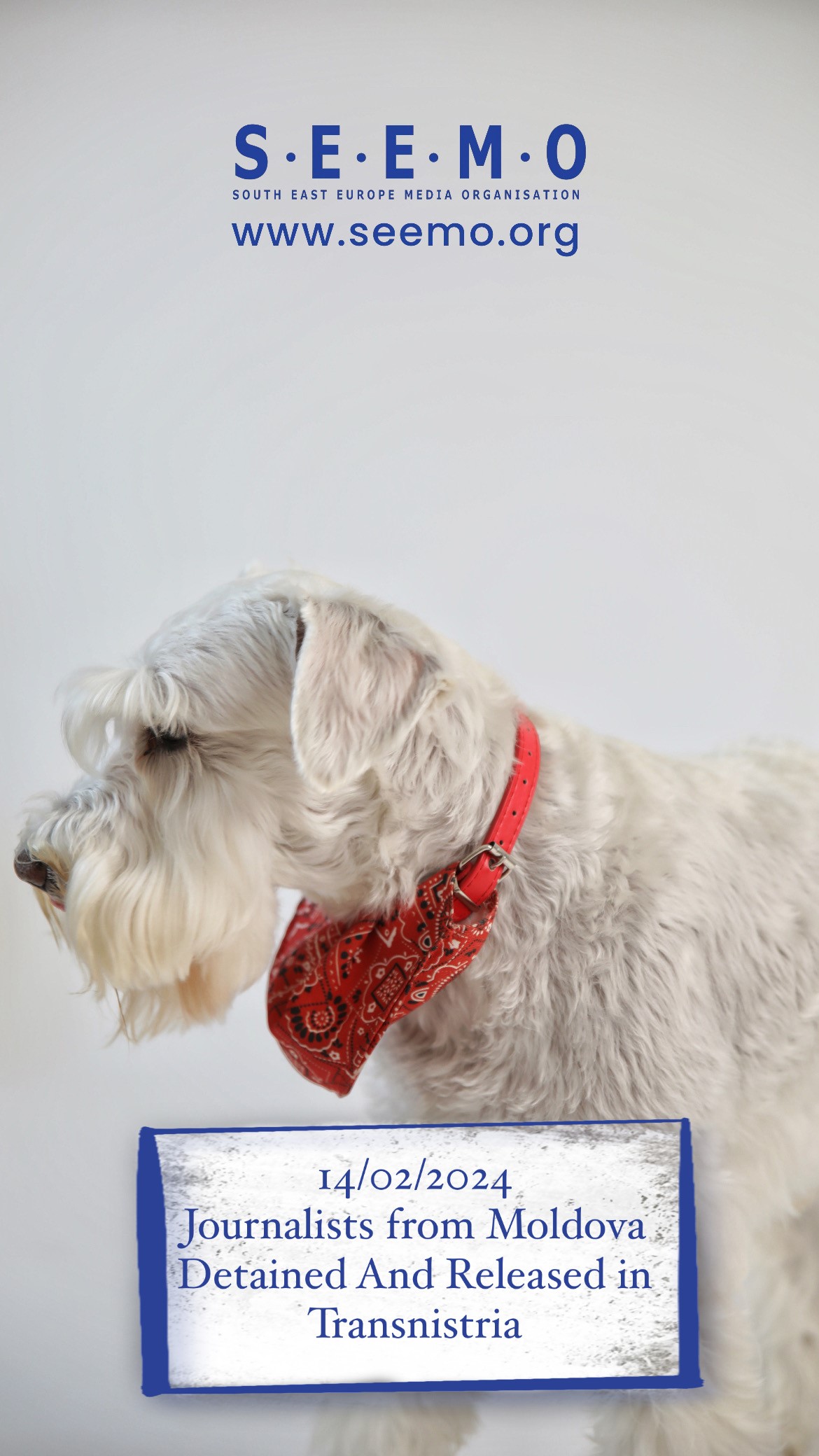On 24 January 2024, journalists Viorica Tătaru and Andrei Captarenco, both affiliated with Moldova’s TV8 (https://tv8.md/), found themselves at the center of an incident while covering a local protest in Tiraspol (Тираспол), Transnistria / Transdniestria / Pridnestrovie (officially Pridnestrovian Moldavian Republic (PMR) – Приднестро́вская Молда́вская Респу́блика, ПМР – part of Moldova out of control of the government in Chisinau). Russia maintains some 1,500 soldiers in Transnistria, as also some additional 500 as “peacekeepers”.
The protest aimed to voice opposition against newly imposed customs duties on goods entering and leaving the region. However, their journalistic effort took an unexpected turn when staff from the State Security of PMR detained them. This rapid detention underscores the severe restrictions on press freedom within Transnistria, where journalists face constant surveillance and intimidation merely for attempting to fulfill their professional duties.
It was revealed that Tătaru and Captarenco were subjected to lengthy interrogations, lasting around three hours, during which they were questioned separately. The security personnel, compelled the journalists to delete all footage captured at the protest, effectively erasing any documentation of the event. Such actions not only violate the rights of journalists but also obstruct the public’s right to be informed.
Following their ordeal, the journalists were released after being transported to the Transnistrian border, presumably to ensure their exit from this part of Moldova that is not under the control of the government. This heavy-handed approach to curtailing journalistic activities represents a broader pattern of harassment and censorship targeting media professionals operating in Transnistria. The Moldovan Prosecutor’s Office for Combating Organized Crime and Special Cases has initiated an investigation into the circumstances surrounding the journalists’ detention, signaling a recognition of the seriousness of the incident.
Transnistria, also referred to as Pridnestrovie, is an entity officially designated as the Pridnestrovian Moldavian Republic (Република Молдовеняскэ Нистрянэ), yet it lacks international recognition and is considered a part of Moldova.
This incident is not an isolated one, in September 2023, authorities in Transnistria deemed Moldovan photojournalist Elena Covalenco as “undesirable,” thereby obstructing her from reporting on a soccer event coordinated by the Union of European Football Associations (UEFA). They further enforced a three-year prohibition on her access to Transnistria, citing her journalistic activities as a significant security concern. In 2022 two Romanian journalists were arrested in Transnistria and escorted to the territory controlled by the Moldovan government. In 2010 a Transnistrian court sentences Ernest Vardanean to 15 years in prison for spying for Moldova, he was realased in 2011 and moved with his family to Chisnau.
This underscores the systemic challenges faced by journalists covering Transnistria, where press freedom is consistently undermined by arbitrary restrictions and punitive measures. The lack of accountability for such violations perpetuates an environment of fear and uncertainty for journalists working in the region.
The South East Europe Media Organisation (SEEMO) strongly condemns the arrest of Tătaru and Captarenco as assault on press freedom. Additionally, we urge authorities in Transnistria to respect the rights of journalists and ensure their ability to report freely without fear of reprisal or intimidation. The fundamental principles of freedom of the press must be upheld to safeguard democracy and the public’s right to information.
South East Europe Media Organisation (SEEMO) is a regional non-governmental, non profit network of editors, media executives and leading journalists in Southeast, South, East and Central Europe. SEEMO members are in Albania, Armenia, Azerbaijan, Belarus, Bosnia-Herzegovina, Bulgaria, Croatia, Cyprus, Czech Republic, Estonia, Georgia, Greece, Hungary, Kazakhstan, Kosovo, Kyrgyzstan, Latvia, Lithuania, Malta, Moldova (with the territory of Transdnestria), Montenegro, North Macedonia, Poland, Romania, Russia, Serbia, Slovakia, Slovenia, Tajikistan, Turkmenistan, Türkiye / Turkey, Ukraine and Uzbekistan. Austria, Italy, Vatican and San Marino have a special status in SEEMO. SEEMO has over 3000 individual members, and additional media as corporate members.
#fyp #mediafreedom #seemo #freespeech #southeasteuropemediaorganisation #ngo #journalist #journalistunderattack #moldova #tv8 #VioricaTătaru #AndreiCaptarenco #SEEMO #pressfreedom #mediafreedom #freemedia

